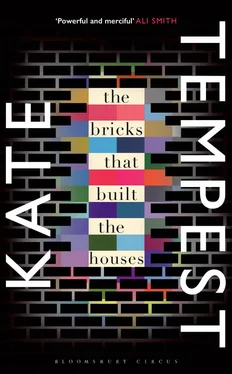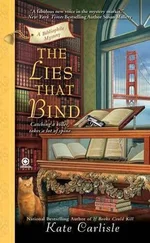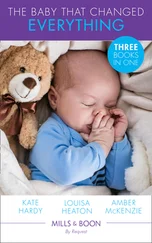At home, he was uncommunicative. He didn’t sleep well at night and was often in bed long after Paula had fallen asleep and up long before she awoke. He showed no interest in cooking meals, or sitting with Paula and talking in the evenings. He was a crumpled shell, often collapsing in the hallway as soon as he came through the door. Paula would see him canvassing on the streets and answering questions for reporters, and it would shoot her through with jealousy that he could be so sparkly-eyed for them but he could barely raise a smile for her. A loneliness had fallen on him, the like of which he’d never known. Nothing could cure it, not his girlfriend, his daughter, not his friends, not his studies. It was only momentarily dispelled when he was giving his speeches. But they would leave him, in his private moments, more depleted than ever.
The Darke day, as it came to be known, fell on 22 February 1995. Becky was a little over five and was dancing all the time. Paula was sitting in a tap and jazz class with Becky at the leisure centre and her daughter was a marvel. Becky’s teacher smiled over at Paula. Paula blushed and fiddled with the tops of her socks.
That evening John had promised to cook them all dinner. She was not prepared to lose him to his politics. As she watched Becky doing her steps she was sure things were going to get better. He was her man and he was her daughter’s father, and she had resolved that that night they would talk. It wasn’t enough to skirt over the fact that he wasn’t himself and was losing them both.
As Becky counted the beats and pointed her toes, John Darke was in his study amending the opening of a speech he was to deliver the next day. He was just debating whether it was better to start with a friendly greeting or a damning statistic when he heard three knocks at the door. He opened it and saw the usual students gathered in crowds, waiting, as they had been doing these past few months, for an audience with him, but at the head of this crowd, staring stone-faced, three large policemen stood, legs parted, arms by their sides. Two of them wore uniform, one of them was clearly Special Branch, dressed as he was in a once smart trench coat and beaten-up shoes, his pursed lips opened beneath his weary moustache.
‘Mr John Darke?’
They crucified him. Painted him a villain. He was drawn in the press as an alcoholic manic-depressive dope-fiend. A callous reprobate out for the country’s young. Lurking in the classrooms of the university where he taught, poisoning minds and seducing bodies. Features were written by TV personalities calling him an insatiable sexual deviant. Columnists, gossip hounds and serious political journalists all had their piece to say on the matter, and it wasn’t just in the right-wing papers. It became fashionable to hate John Darke. Damning him meant you absolved yourself. They discussed his homosexual leanings in the comments pages. They burned his reputation to the ground.
He was charged with having sexual intercourse with underage girls. Six counts of rape. He denied all the charges. For weeks there hadn’t been a page that wasn’t full of John Darke’s suspect character and his deviant tendencies.
He had never shown interest in underage girls, but he had been a man who enjoyed sex immensely. Before these serious days he had often indulged in casual affairs, but since he’d met Paula all that had changed. Or had it? The jury could not forget that here was a man who, intent on power, was charging around the country like a rock star on tour, meeting young girls who found him impressive. Who could be sure? Were there not testimonies? Young, crying girls, fourteen and fifteen, weeping in courtrooms, while John sat, silent, dark-eyed, destroyed.
Paula stuck by her man as long as she could but he was so quiet and strained in the visits. And no smoke without fire and she couldn’t bear to think that the man she loved most in the world, those hands that she’d held and adored, were the hands of a man who could do things like these. She swallowed her doubt, but the hook stuck in the flesh of her mouth, pulling her upwards, away from him. This is a set-up , he told her, and she nodded and told him she knew that it was. But if enough people believed in a lie, the truth didn’t matter at all.
On 17 November 1995, John Darke was found guilty by a jury of his peers. Some maintained that the jury must have had their perspectives tinted by the hysteria in the papers, but these complaints died down after the complainants found themselves tarnished as paedophile apologists and conspirators.
Paula and Becky threw their clothes into bin bags and moved out of the flat. Paula held her child in one hand and dragged their bags with the other, and together they walked aimlessly into the night. Becky watched her mother dance in the paparazzi strobes.
Who could be sure if the accusations were true? Was he really a rapist of underage girls? Could he have done it? There were those who didn’t believe in the conviction. Who carried on reading his papers and meeting in secret, trying to get mobilised. But the damage was done. They couldn’t gather momentum against such a force. His followers were heart-broken, destroyed. They felt they had been shown by the ruling classes what happens to those who don’t play by the rules. The fire went out of the movement. John Darke’s followers became as shamed as their figurehead.
After three weeks, not knowing where else to turn, Paula and Becky moved in with Paula’s eldest brother Ron and his wife Linda, and their son Ted, who was only a year or so younger than Becky. Ron and Linda lived in a three-bed maisonette in a quiet cul-de-sac away from the bustle of Lewisham Way, up towards Charlton. The house looked out on to a sloping communal green and if you stood on your tiptoes at the top of the hill you could see the river churning its way to Greenwich.
Becky’s Auntie Linda was a tidy-framed lady with natural hair and skin the colour of fired clay. She dressed well and prided herself on her ability to find the only gem in a sprawling car-boot sale. Her heritage was Jamaican/Irish and she slipped between both accents when she was saying something important, but for the most part she spoke in the round vowels of south London. She was a straightforward woman, gentle-mannered. She could not tolerate stupidity and when she encountered it she called it by its name. She worried constantly about the state of things: she’d worry about the city, her family, her business, the weather, her husband’s health. She had a habit of staring off into the middle distance and tutting slowly whenever anything happened, convinced of some prophecy that was becoming truer and truer every day; everything on the news, in the street, in the house, fed her sense of growing dread. But she maintained a mischievous sense of humour. She was Becky’s favourite human being.
Ted was a goofy kid with little tight curls and dimples, and a sweet manner. As time passed, he became like a brother to Becky. He’d push her over and give her Chinese burns and lock her in cupboards.
Becky’s Uncle Ron was short and round, and had a laugh like a broken engine, stuttering and guttural. He was south London Jewish and was proud of his heritage. He was a softy really, but in public he scowled and swaggered and cut his eyes at anyone he didn’t like the look of. He wore what Linda picked out for him. His dark hair was long at the top and neat at the sides, swept back off his head in a little baggy quiff. He had a happy mouth full of teeth, ground down from cheap teenage speed and yellowing from sweets and fags, piercing bright blue eyes that shone when he thought hard, set deep in his face, and a brow that stood out like a headline. He walked with his arms linked behind his back, chest pushed out, greeting people he knew with a bow of the head.
Читать дальше












